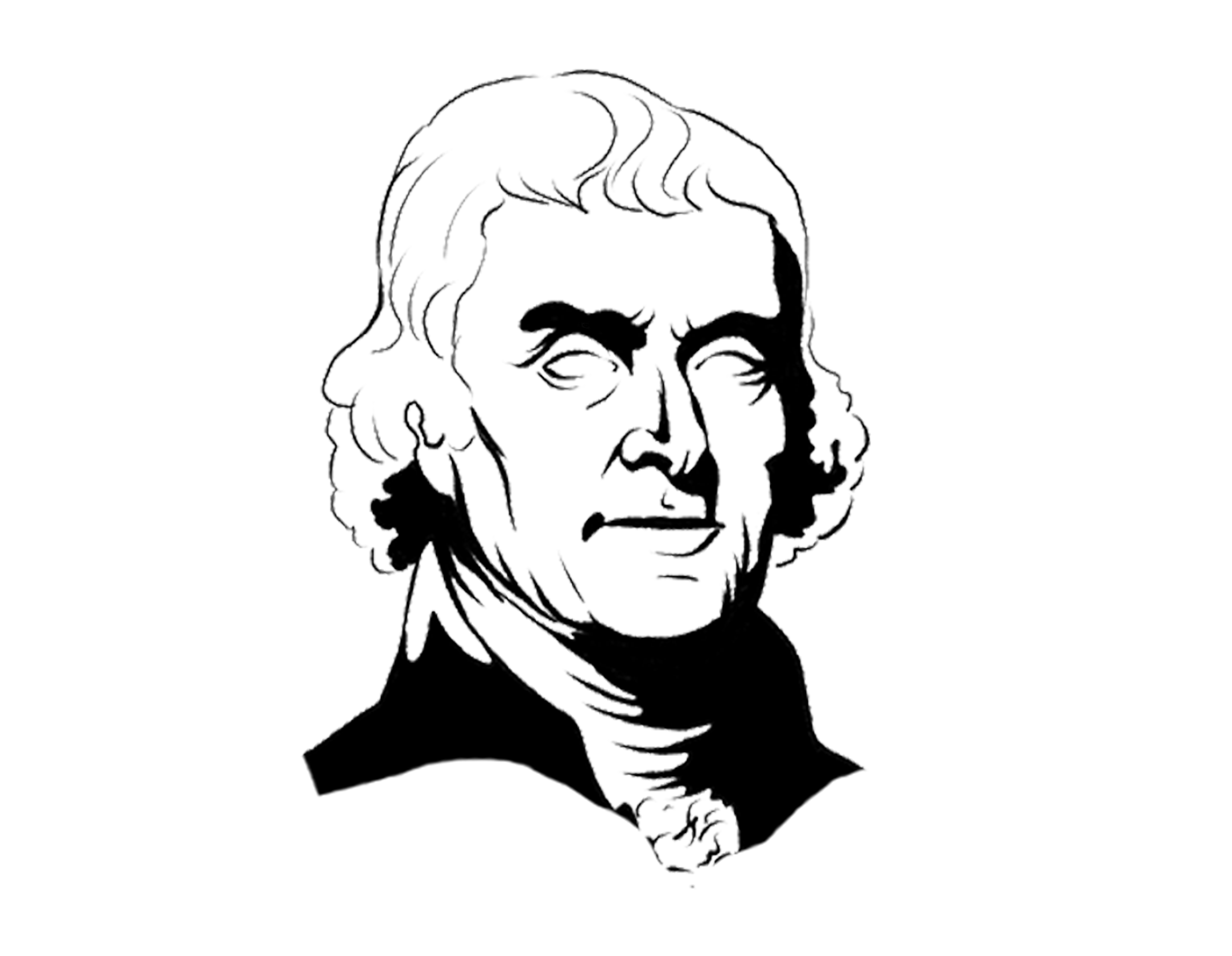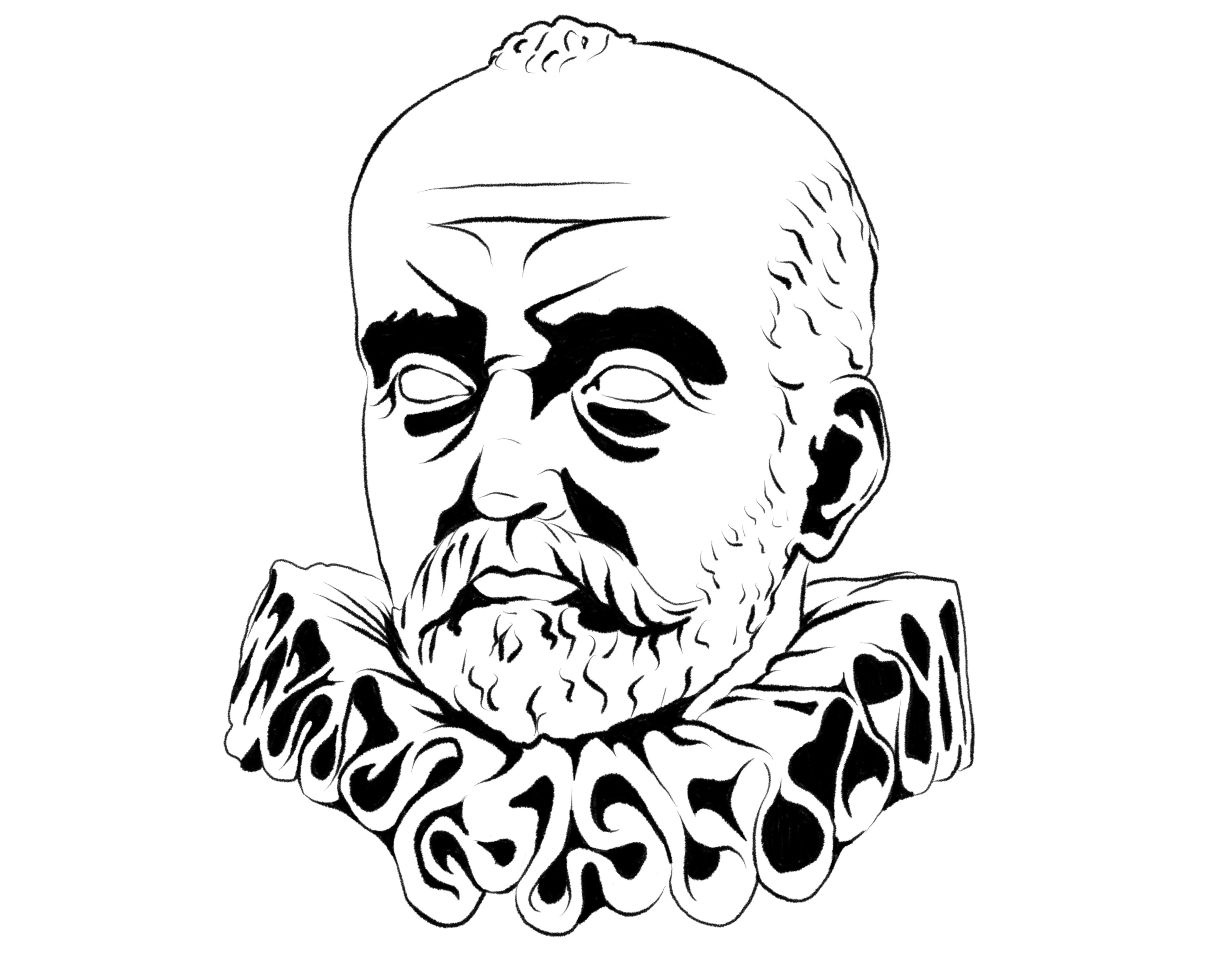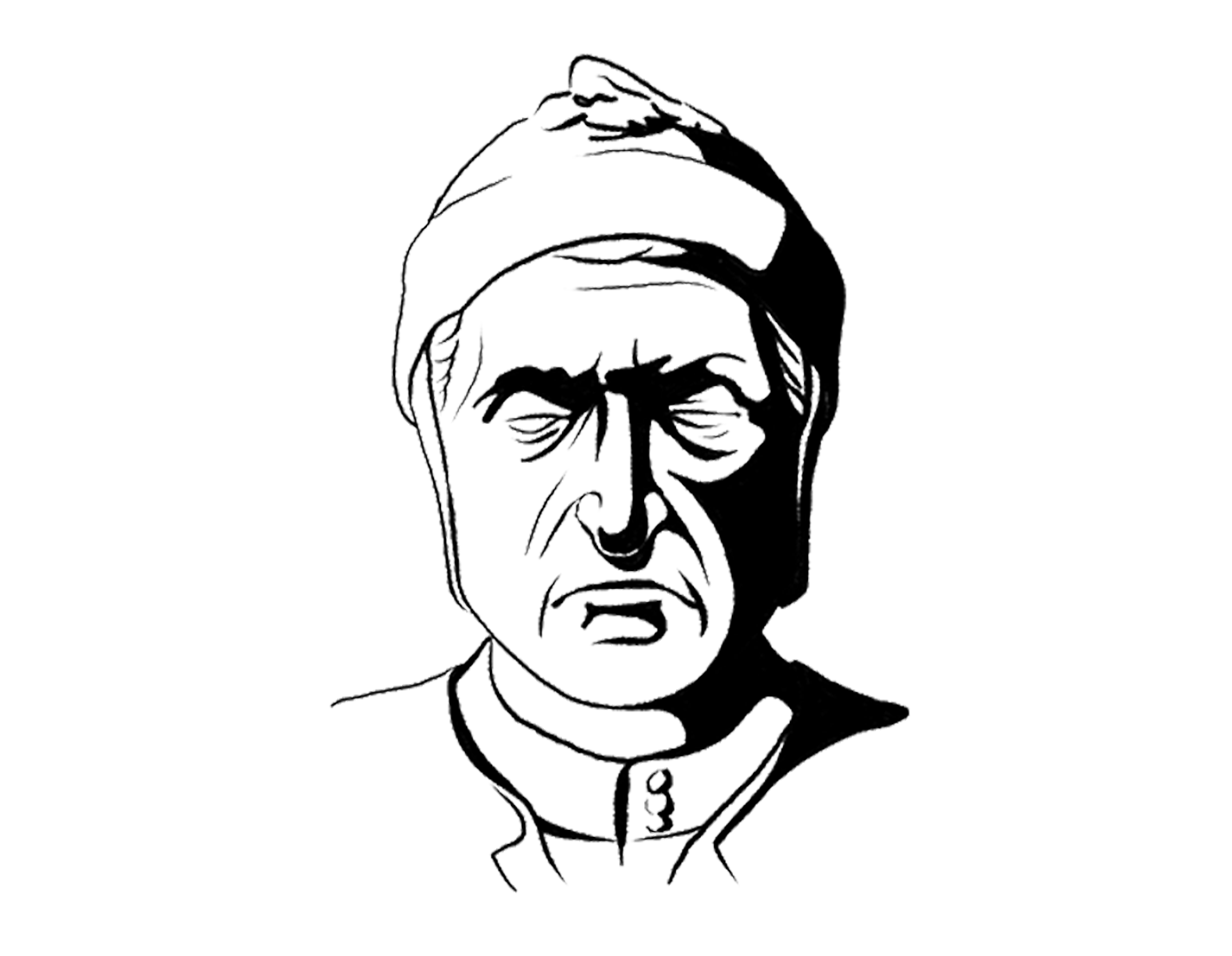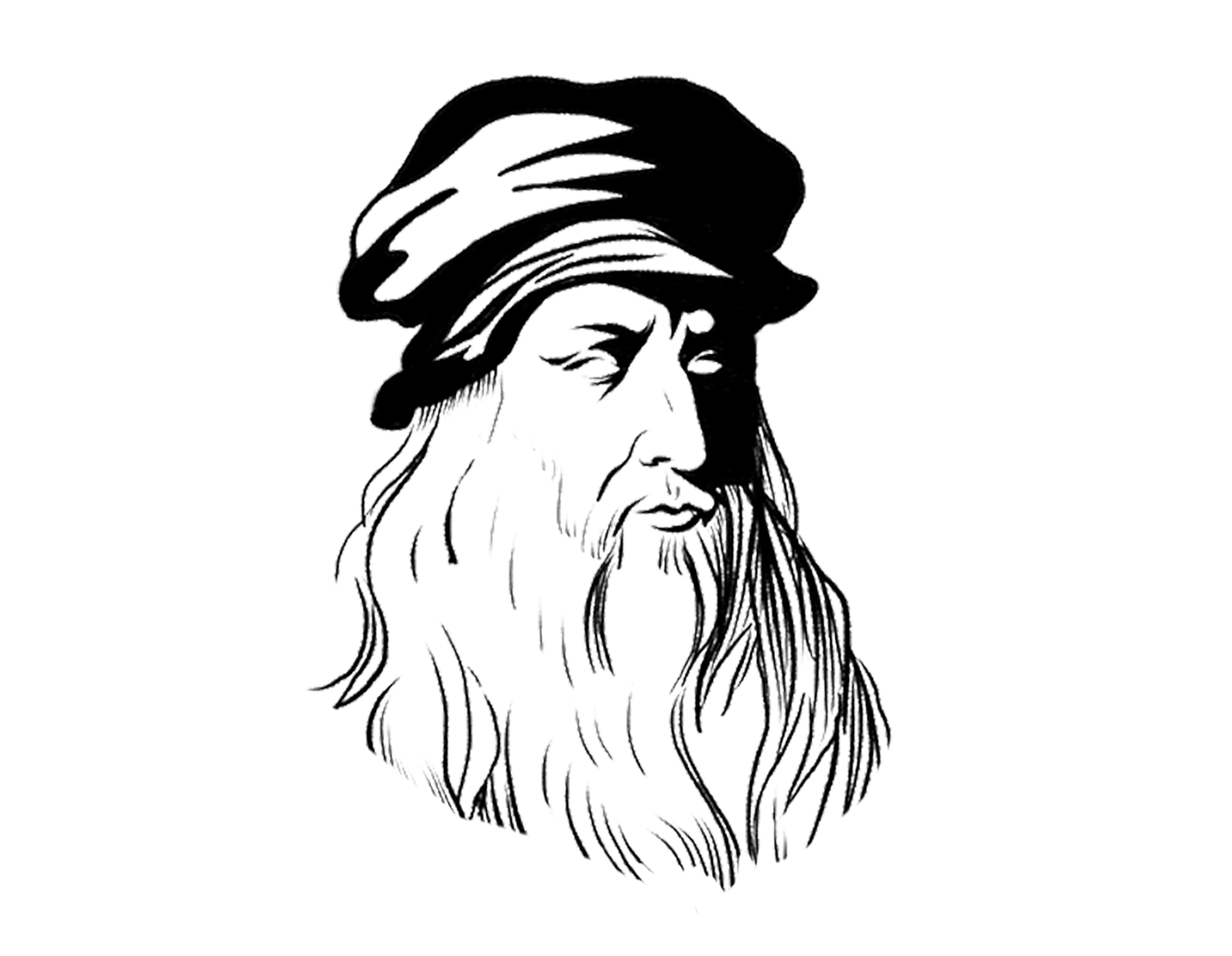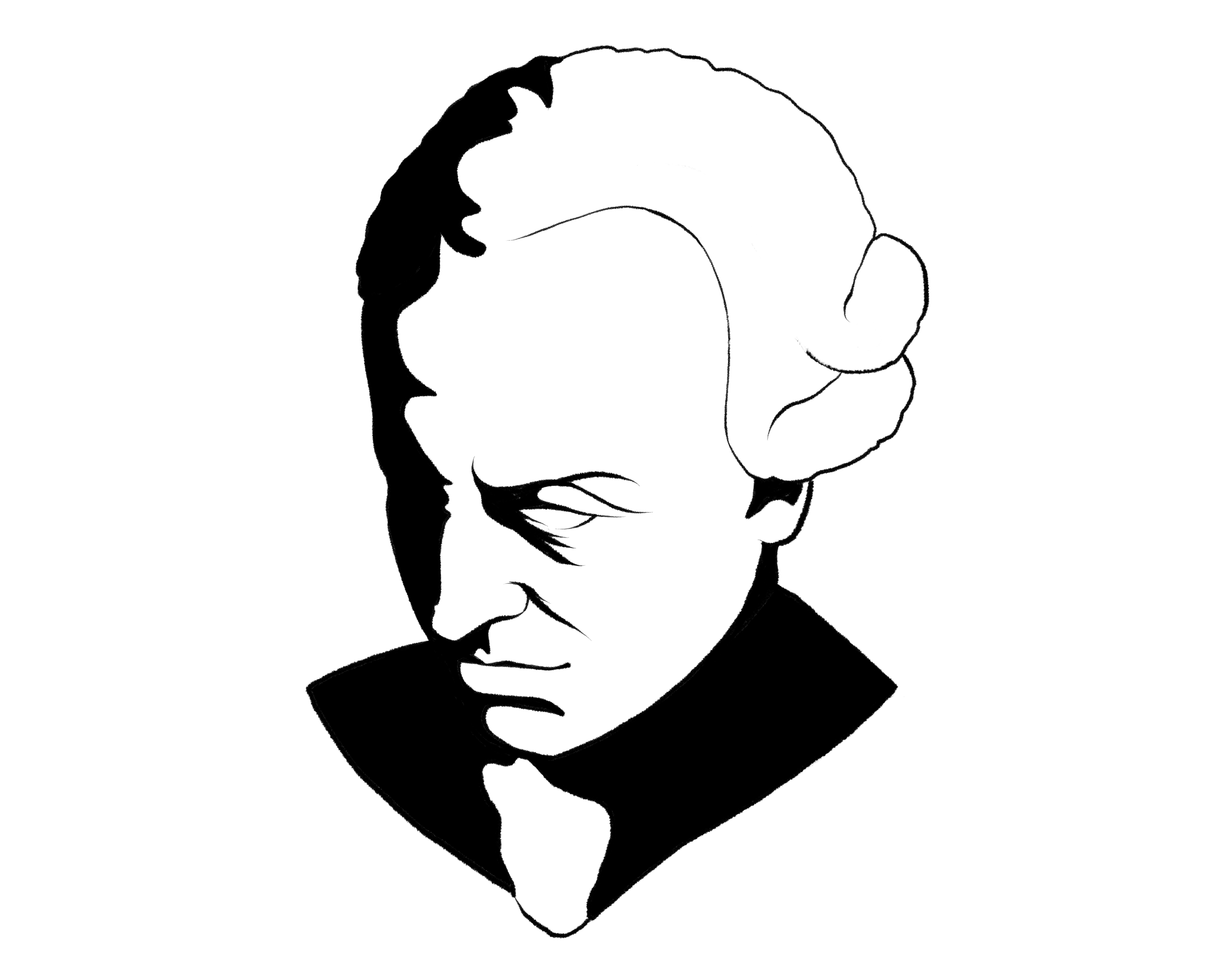Year 1: Greece and Rome
Semester 1: Greece
[Greece was] the first of civilized nations [which] presented examples of what man should be.
—Thomas Jefferson to A. Coray, 1823. ME 15:481
Year 1, Semester 1: Greece
Week 1: Homer (Poetry)
Homer, The Iliad (549 pp. of verse)
Lingua Latina per se Illustrata: Pars I: Familia Romana Cap. I
Exercitia Latina I: Exercises for Familia Romana (Lingua Latina) (Pt. 1, No. 1) Cap I
Week 2: Homer (Poetry)
Homer, The Odyssey (481 pp. of verse)
Lingua Latina per se Illustrata: Pars I: Familia Romana Cap. II
Exercitia Latina I: Exercises for Familia Romana (Lingua Latina) (Pt. 1, No. 1) Cap II
Week 3: Sophocles (Poetry)
Sophocles, The Oedipus Plays of Sophocles: Oedipus the King; Oedipus at Colonus; Antigone (253 pp. of dialogue)
Lingua Latina per se Illustrata: Pars I: Familia Romana Cap. III
Exercitia Latina I: Exercises for Familia Romana (Lingua Latina) (Pt. 1, No. 1) Cap III
Week 4: Herodotus (History)
Herodotus, The Landmark Herodotus: The Histories (721 pp. of prose, including figures, footnotes, and maps)
Lingua Latina per se Illustrata: Pars I: Familia Romana Cap. IV
Exercitia Latina I: Exercises for Familia Romana (Lingua Latina) (Pt. 1, No. 1) Cap IV
Week 5: Herodotus (History)
Herodotus, The Landmark Herodotus: The Histories (721 pp. of prose, including figures, footnotes, and maps)
Lingua Latina per se Illustrata: Pars I: Familia Romana Cap. V
Exercitia Latina I: Exercises for Familia Romana (Lingua Latina) (Pt. 1, No. 1) Cap V
Week 6: Thucydides (History)
Thucydides, The Landmark Thucydides: A Comprehensive Guide to the Peloponnesian War (548 pp. of prose, including figures, footnotes, and maps)
Lingua Latina per se Illustrata: Pars I: Familia Romana Cap. VI
Exercitia Latina I: Exercises for Familia Romana (Lingua Latina) (Pt. 1, No. 1) Cap VI
Week 7: Thucydides (History)
Thucydides, The Landmark Thucydides: A Comprehensive Guide to the Peloponnesian War (548 pp. of prose, including figures, footnotes, and maps)
Lingua Latina per se Illustrata: Pars I: Familia Romana Cap. VII
Exercitia Latina I: Exercises for Familia Romana (Lingua Latina) (Pt. 1, No. 1) Cap VII
Week 8: Xenophon (History)
Xenophon, The Landmark Xenophon’s Hellenika (316 pp. of prose, including figures, footnotes, and maps)
Lingua Latina per se Illustrata: Pars I: Familia Romana Cap. VIII
Exercitia Latina I: Exercises for Familia Romana (Lingua Latina) (Pt. 1, No. 1) Cap VIII
Week 9: Plato (Morality)
Plato, Euthyphro in Plato: Five Dialogues: Euthyphro, Apology, Crito, Meno, Phaedo (Hackett Classics) (pp. 1-20) (20 pp.)
Plato, Apology in Plato: Five Dialogues: Euthyphro, Apology, Crito, Meno, Phaedo (Hackett Classics) (pp. 21-44) (23 pp.)
Plato, Crito in Plato: Five Dialogues: Euthyphro, Apology, Crito, Meno, Phaedo (Hackett Classics) (pp. 45-57) (12 pp.)
Plato, Plato: Five Dialogues: Euthyphro, Apology, Crito, Meno, Phaedo (Hackett Classics) (pp. 93-154) (61 pp.)
Lingua Latina per se Illustrata: Pars I: Familia Romana Cap. IX
Exercitia Latina I: Exercises for Familia Romana (Lingua Latina) (Pt. 1, No. 1) Cap IX
Week 10: Plato (Morality)
Plato, Republic (Hackett Classics) (292 pp. of dialogue)
Lingua Latina per se Illustrata: Pars I: Familia Romana Cap. X
Exercitia Latina I: Exercises for Familia Romana (Lingua Latina) (Pt. 1, No. 1) Cap X
Week 11: Aristotle (Morality)
Aristotle, Nicomachean Ethics in The Basic Works of Aristotle (Modern Library Classics) (pp. 935-1126) (191 pp.)
Aristotle, Politics in The Basic Works of Aristotle (Modern Library Classics) (pp. 1127-1324) (197 pp.)
Lingua Latina per se Illustrata: Pars I: Familia Romana Cap. XI
Exercitia Latina I: Exercises for Familia Romana (Lingua Latina) (Pt. 1, No. 1) Cap XI
Week 12: Aristotle (Rhetoric and Poetry)
Aristotle, Rhetoric in The Basic Works of Aristotle (Modern Library Classics) (pp. 1325-1454) (129 pp.)
Aristotle, Poetics in The Basic Works of Aristotle (Modern Library Classics) (pp. 1455-1487) (32 pp.)
Lingua Latina per se Illustrata: Pars I: Familia Romana Cap. XII
Exercitia Latina I: Exercises for Familia Romana (Lingua Latina) (Pt. 1, No. 1) Cap XII
Week 13: Plutarch (History)
Plutarch, “Alexander” in Plutarch's Lives, Volume 2 (Modern Library Classics) (pp. 139-199) (60 pp. of prose)
Quintus Curtius, The History of Alexander (Penguin Classics) (240 pp.)
Lingua Latina per se Illustrata: Pars I: Familia Romana Cap. XIII
Exercitia Latina I: Exercises for Familia Romana (Lingua Latina) (Pt. 1, No. 1) Cap XIII
Week 14: Thanksgiving Holidays
Thanksgiving Holidays
Week 15: Arrian (History)
Arrian, The Landmark Arrian: The Campaigns of Alexander (158 pp.)
Lingua Latina per se Illustrata: Pars I: Familia Romana Cap. XIV
Exercitia Latina I: Exercises for Familia Romana (Lingua Latina) (Pt. 1, No. 1) Cap XIV
Week 16: Arrian (History)
Arrian, The Landmark Arrian: The Campaigns of Alexander (158 pp.)
Lingua Latina per se Illustrata: Pars I: Familia Romana Cap. XV
Exercitia Latina I: Exercises for Familia Romana (Lingua Latina) (Pt. 1, No. 1) Cap XV
Week 17: Final Exams
Final Exams
Year 1: Greece and Rome
Semester 2: Rome
Finding myself useless for this age, I throw myself back upon that other, and am so bewitched by it that the state of that ancient Rome, free, just, and flourishing (for I love neither her birth nor her old age), interests me passionately.
—Montaigne, Essays
Year 2: Rome
Year 2, Semester 1: The Roman Republic
Week 1: Virgil (Poetry)
The Aeneid by Vergil (Author), Sarah Ruden (Translator) (pp. 1-295) (295 pp.)
Lingua Latina per se Illustrata: Pars I: Familia Romana Cap. XVI
Week 2: Livy (History)
The Rise of Rome: Books One to Five (Oxford World's Classics) (Bks. 1-5) by Livy and T. J. Luce (pp. 1-342) (342 pp.)
Exercitia Latina I: Exercises for Familia Romana (Lingua Latina) (Pt. 1, No. 1) Cap XVI
Week 3: Livy (History)
The Rise of Rome: Books One to Five (Oxford World's Classics) (Bks. 1-5) by Livy and T. J. Luce (pp. 1-342) (342 pp.)
Lingua Latina per se Illustrata: Pars I: Familia Romana Cap. XVII
Week 4: Livy (History)
Rome's Italian Wars: Books 6-10 (Oxford World's Classics) by J. C. Yardley and Dexter Hoyos (pp. 3-288) (285 pp.)
Exercitia Latina I: Exercises for Familia Romana (Lingua Latina) (Pt. 1, No. 1) Cap XVII
Week 5: Plutarch (History)
Romulus (Vol. 1, pp. 25-49) (24 pp.)
Numa (Vol. 1, pp. 81-101) (20 pp.)
Coriolanus (Vol. 1, pp. 291-321) (30 pp.)
Poplicola (Vol. 1, pp. 129-143) (14 pp.)
Camillus (Vol. 1, pp. 170-200) (30 pp.)
Fabius Maximus (Vol. 1, pp. 235-256) (21 pp.)
P. Aemilius (Vol. 1, pp. 356-383) (27 pp.)
Marcellus (Vol. 1, pp. 408-431) (23 pp.)
M. Cato (Vol. 1, pp. 457-479) (22 pp.)
Flaminius (Vol. 1, pp. 499-517) (18 pp.)
Lingua Latina per se Illustrata: Pars I: Familia Romana Cap. XVIII
Week 6: Polybius (History)
The Histories (Oxford World's Classics) by Polybius (Author), Robin Waterfield (Author), Brian McGing (Author) (pp. 3-447) (444 pp.)
Exercitia Latina I: Exercises for Familia Romana (Lingua Latina) (Pt. 1, No. 1) Cap XVIII
Week 7: Polybius (History)
The Histories (Oxford World's Classics) by Polybius (Author), Robin Waterfield (Author), Brian McGing (Author) (pp. 3-447) (444 pp.)
Lingua Latina per se Illustrata: Pars I: Familia Romana Cap. XIX
Week 8: Sallust (History)
Catiline's Conspiracy, The Jugurthine War, Histories (Oxford World's Classics) by Sallust (Author), William W. Batstone (Author) (pp. 3-155) (152 pp.)
Exercitia Latina I: Exercises for Familia Romana (Lingua Latina) (Pt. 1, No. 1) Cap XIX
Week 9: Plutarch (History)
Marius (pp. 549-584) (35 pp.)
Sulla (607-638) (31 pp.)
Lucullus (600-695) (95 pp.)
Crassus (pp. 724-751) (27 pp.)
Lingua Latina per se Illustrata: Pars I: Familia Romana Cap. XX
Week 10: Plutarch (History)
Sertorius (Vol. 2, pp. 1-22) (22 pp.)
Cato (Vol. 2, pp. 270-317) (47 pp.)
Cicero (Vol. 2, pp. 408-441) (33 pp.)
Brutus (Vol. 2, pp. 572-609) (37 pp.)
Antonius (Vol. 2, pp. 481-534) (53 pp.)
Exercitia Latina I: Exercises for Familia Romana (Lingua Latina) (Pt. 1, No. 1) Cap XX
Week 11: Spring Break
Spring Break
Week 12 (Mar 25-Mar 29): Caesar (History)
The Gallic War: Seven Commentaries on The Gallic War with an Eighth Commentary by Aulus Hirtius (Oxford World's Classics) (pp. 1-245) (245 pp.)
Lingua Latina per se Illustrata: Pars I: Familia Romana Cap. XXI
Week 13: Cicero (Rhetoric)
How to Win an Argument: An Ancient Guide to the Art of Persuasion (Ancient Wisdom for Modern Readers) by Marcus Tullius Cicero (Author), James M. May (Translator) (pp. 1-288) (144 pp.)
How to Win an Election: An Ancient Guide for Modern Politicians by Quintus Tullius Cicero (Author), Philip Freeman (Translator) (pp. 1-128) (64 pp.)
Week 14: Cicero (Morality)
How to Run a Country: An Ancient Guide for Modern Leaders (Ancient Wisdom for Modern Readers) by Marcus Tullius Cicero (Author), Philip Freeman (Translator) (pp. 1-152) (76 pp.)
How to Be a Friend: An Ancient Guide to True Friendship (Ancient Wisdom for Modern Readers) by Marcus Tullius Cicero (Author), Philip Freeman (Translator, Introduction) (pp.1-208) (104 pp.)
How to Grow Old: Ancient Wisdom for the Second Half of Life (Ancient Wisdom for Modern Readers) by Marcus Tullius Cicero (Author), Philip Freeman (Translator, Introduction) (pp. 1-216) (108 pp.)
Week 15: Caesar (History)
The Civil War (Oxford World's Classics) by Julius Caesar (Author), J. M. Carter (Translator) (pp. 1-270) ( 270 pp.)
Exercitia Latina I: Exercises for Familia Romana (Lingua Latina) (Pt. 1, No. 1) Cap XXI
Week 16: Lucretius (Morality)
On the Nature of the Universe (Oxford World's Classics) by Lucretius (Author), Ronald Melville (Translator), Don Fowler (Introduction), Peta Fowler (Introduction) (pp. 1-217) (217 pp.)
Lingua Latina per se Illustrata: Pars I: Familia Romana Cap. XXII
Week 17: Final Exams
Final Exams
Year 2, Semester 2: The Roman Empire
Week 1: Course Introduction
Course Introduction
Week 2: Ovid (Poetry)
Metamorphoses (Oxford World’s Classics) by Ovid (Author), A. D. Melville (Translator), E. J. Kenney (Introduction) (pp. 1-381) (381 pp.)
Week 3: Suetonius (History)
Week 4: Tacitus (History)
The Annals: The Reigns of Tiberius, Claudius, and Nero (Oxford World’s Classics) 1st Edition by Cornelius Tacitus (Author), Anthony A. Barrett (Author), J. C. Yardley (Translator) (pp. 1-394) (394 pp.)
Week 5: Tacitus (History)
The Annals: The Reigns of Tiberius, Claudius, and Nero (Oxford World’s Classics) 1st Edition by Cornelius Tacitus (Author), Anthony A. Barrett (Author), J. C. Yardley (Translator) (pp. 1-394) (394 pp.)
Week 6: Seneca (Morality)
How to Keep Your Cool: An Ancient Guide to Anger Management (Ancient Wisdom for Modern Readers) by Seneca (Author), James S. Romm (Translator, Introduction) (pp. 1-240) (120 pp.)
On the Shortness of Life: Life Is Long if You Know How to Use It (Penguin Great Ideas) by Seneca (Author), C. D. N. Costa (Translator) (pp. 1-105) (105 pp.)
How to Die: An Ancient Guide to the End of Life (Ancient Wisdom for Modern Readers) by Seneca (Author), James S. Romm (Editor, Introduction) (pp. 1-256) (128 pp.)
Week 7: Tacitus (History)
The Histories (Oxford World’s Classics) by Tacitus (Author), W. H. Fyfe (Author), D. S. Levene (Editor) (pp. 1-250) (250 pp.)
Week 8: Quintilian (Rhetoric)
Ancient Rhetoric: From Aristotle to Philostratus (Penguin Classics) by Thomas Habinek (Editor) (305 pp.)
Week 9: Epictetus (Morality)
How to Be Free: An Ancient Guide to the Stoic Life (Ancient Wisdom for Modern Readers) by Epictetus (Author), Anthony Long (Translator, Introduction) (pp. 1-232) (116 pp.)
Week 10: Marcus Aurelius (Morality)
Meditations: with selected correspondence (Oxford World’s Classics) by Marcus Aurelius (Author), Robin Hard (Author), Christopher Gill (Author) (pp. 1-122) (122 pp.)
Week 11: Plotinus (Morality)
The Essential Plotinus (Hackett Classics) by Plotinus (Author), Elmer O’Brien S.J. (Translator) (pp. 33-175/215) (142/182 pp.)
Week 12: Eusebius (History/Morality)
The Life of the Blessed Emperor Constantine by Eusebius Pamphilus (Author), Aeterna Press (Producer) (pp. 1-270) (270 pp.)
Week 13: Eusebius (History)
An Ecclesiastical History to the 20th Year of the Reign of Constantine by Eusebius (pp. 1-384) (384 pp.)
Week 14: Thanksgiving
Thanksgiving
Week 15: Eusebius (History)
An Ecclesiastical History to the 20th Year of the Reign of Constantine (Illustrated) by Eusebius (pp. 1-384) (384 pp.)
Week 16: Augustine (Morality)
The Essential Augustine by Saint Augustine of Hippo (Author), Vernon J. Bourke (Editor) (268 pp.)
Week 17: Final Exams
Final Exams
Year 3: The Middle Ages
Semester 1: The Early Middle Ages
“Our use of phrase ‘The Dark Ages’ to cover the period from 699 to 1,000 marks our undue concentration on Western Europe. . . . From India to Spain, the brilliant civilization of Islam flourished. What was lost to Christendom at this time was not lost to civilization, but quite the contrary. . . . To us it seems that West-European civilization is civilization, but this is a narrow view.”
—Bertrand Russell, History of Western Philosophy
Year 3: The Middle Ages
Year 3, Semester 1: The Early Middle Ages
Week 1: Al-Tabari (839-923) or (570-622) (History)
Al-Tabari, The History of al-Tabari Vol. 6: Muhammad at Mecca (SUNY series in Near Eastern Studies) by W. Montgomery Watt (Translator), M. V. McDonald (Translator) (228 pp.)
Week 2: Einhard (770-840) and Notker the Stammerer (840-912) and Theophanes (925-945) (History)
Theophanes, The Chronicle of Theophanes: Anni mundi 6095-6305 (A.D. 602-813) (The Middle Ages Series) by Harry Turtledove (Translator) (181 pp.)
Einhard and Notker the Stammerer, Two Lives of Charlemagne (Penguin Classics) by Einhard (Author) and Notker the Stammerer (116 pp.)
Week 3: Anonymous (c. 1040) (Poetry)
Anonymous, The Song of Roland (Hackett Classics) by John DuVal (Author), David Staines (Introduction) (pp. 1-112) (112 pp.)
Week 4: Alkindus (801-873) and Avenassar (870-950) (Morality)
Alkindus, “On Dispelling Sorrows” (pp. 245-248) (3 pp.), “Letter on the Method of How to Dispel Sorrows” (pp. 249-266) (17 pp.), “The Sayings of Socrates” (pp. 267-272) (5 pp.) in The Philosophical Works of al-Kindi (Studies in Islamic Philosophy) by Peter E. Pormann (Editor), Peter Adamson (Editor) (25 pp.)
Avenassar, “The Attainment of Happiness,” (pp. 13-50) (38 pp.) in Philosophy of Plato and Aristotle (Agora Editions) by Alfarabi (Author), Muhsin Mahdi (Translator), Charles E. Butterworth (Foreword), Thomas L. Pangle (Foreword) (38 pp.)
Week 5: Avenassar (870-950) (Morality)
Avenassar, On the Perfect State by Abu Nasr al-Farabi (Author), Richard Walzer (Translator) (pp. 39-329) (145 pp.)
Week 6: Yahya Ibn Adi (893-974) and Avicenna (980-1037) (Morality)
Yahya Ibn Adi, Reformation of Morals: A Parallel English-Arabic Text by Sidney H. Griffith, Translator, (50 pp.)
Avicenna, “Essay on the Secret of Destiny” in Reason and Tradition in Islamic Ethics by George F. Hourani (Author) (pp. 229-231) (3 pp.)
Week 7: Brethren of Purity (10th century) (Morality)
Brethren of Purity, The Case of the Animals versus Man Before the King of the Jinn: An English Translation of Epistle 22 by Lenn E.Goodman (Editor), Richard McGregor (Editor) (256 pp.)
Week 8: Anonymous (975-1010) (Poetry)
Anonymous, Beowulf by Stephen Mitchell (Translator), (208 pp.)
Week 9: Avicebron (1021-1058) (Poetry)
Avicebron, Vulture in a Cage: Poems by Solomon Ibn Gabirol by Solomon Ibn Gabirol and Raymond P. Scheindlin (pp.) ( pp.)
Week 10: Algazel (1058-1111) (Morality)
Algazel, The Alchemy of Happiness (Sources and Studies in World History) by Abu Hamid Muhammad al-Ghazzali (Author), Elton D. Daniel (Author), Claud Field (Author)
Week 11: Peter Abelard (1079-1142) and Heloise (1090-1164) (History)
Abelard and Heloise, The Letters of Abelard and Heloise (Penguin Classics) by Peter Abelard (Author), Heloise (Author), Michael Clanchy (Editor, Introduction), Betty Radice (Translator) (pp. 3-245) (242 pp.)
Week 12: Anna Komnene (1083-1153) (History)
Anna Komnene, The Alexiad (Penguin Classics) by Anna Komnene (Author), Peter Frankopan (Editor, Introduction), E. R. A. Sewter (Translator) (3-236 pp.) (233 pp.)
Week 13: Spring Break
Spring Break
Week 14: Anna Komnene (1083-1153) (History)
Anna Komnene, The Alexiad (Penguin Classics) by Anna Komnene (Author), Peter Frankopan (Editor, Introduction), E. R. A. Sewter (Translator) (237-473 pp.) (236 pp.)
Week 15: John of Salisbury (1110-1180) (Morality)
John of Salisbury, John of Salisbury: Policraticus (Cambridge Texts in the History of Political Thought) by Cary J. Nederman (231 pp.)
Week 16: Averroes (1123-1198) (Morality)
Averroes, Averroes on Plato’s “Republic” (Agora Editions) by Averroes (Author), Ralph Lerner (Translator) (pp. 3-149) (146 pp.)
Averroes, Decisive Treatise and Epistle Dedicatory (Brigham Young University - Islamic Translation Series) by Averroës (Author), Charles E. Butterworth (Translator) (pp. 1-46) (23 pp.)
Week 17: Final Exams
Final Exams
Year 3: The Middle Ages
Semester 2: The High and Late Middle Ages
Year 3: The Middle Ages
Year 3, Semester 2: The High and Late Middle Ages
Week 1: Avenassar (870-950), Avicenna (980-1037), Averroes (1123-1198) (Rhetoric)
Avenassar, Avicenna, and Averroes, Three Arabic Treatises on Aristotle’s Rhetoric: The Commentaries of Al-Farabi, Avicenna, and Averroes, (175 pp.)
Week 2: Maimonides (1138–1204) (Morality)
Maimonides, Ethical Writings of Maimonides by Maimonides (Author) (208 pp.)
Week 3: Farid Ud-Din Attar (1145-1221) (Poetry)
Farid Ud-Din Attar, The Conference of the Birds (Penguin Classics) by Farid ud-Din Attar, Afkham Darbandi, et al. (262 pp)
Week 4: Marco Polo (1154-1224) (History)
Marco Polo, The Travels of Marco Polo by Marco Polo and Ronald Latham (pp. 33-193) (160 pp.)
Week 5: Marco Polo (1154-1224) (History)
Marco Polo, The Travels of Marco Polo by Marco Polo and Ronald Latham (pp. 194-345) (151 pp.)
Week 6: Ibn Arabi (1165-1240) and Rumi (1207-1273) (Poetry)
Ibn Arabi, Bewildered: Love Poems from Translation of Desires by Muhyiddin Ibn Al-'Arabi (Author), Michael Sells (Translator) (80 pp.)
Rumi, The Love Poems of Rumi by Nader Khalili (Translator) (123 pp.)
Week 7: Anonymous (c. 1200) (Poetry)
Anonymous, The Song of the Cid (Penguin Classics) A Dual-Language Edition with Parallel Text (Spanish) Bilingual Edition by Anonymous (Author), Maria Rosa Menocal (Editor, Introduction), Burton Raffel (Translator) (124 pp.)
Week 8: Thomas Aquinas (1225-1274) (Morality)
Thomas Aquinas, On Kingship to the King of Cyprus by Thomas Aquinas (Author) (119 pp.)
Week 9: Thomas Aquinas (1225-1274) (Morality)
Thomas Aquinas, Treatise on Law (Hackett Classics) UK ed. Edition by Thomas Aquinas (Author), Richard J. Regan S. J. (Translator) (128 pp.)
Week 10: Dante Alighieri (1265-1321) (Rhetoric)
Dante, Vita Nuova (Oxford World's Classics) by Dante Alighieri (Author), Mark Musa (Translator) (84 pp.)
Dante, Dante: De Vulgari Eloquentia (Cambridge Medieval Classics) by Botterill (Author) (136 pp.)
Week 11: Dante Alighieri (1265-1321) (Poetry)
Dante, The Divine Comedy: Volume 1: Inferno (Pt. 1) (English and Italian Edition) by Dante Alighieri (Author), Robin Kirkpatrick (Editor, Translator, Introduction, Commentary), Giorgio Petrocchi (Editor) (pp. 3-313) (155 pp.)
Week 12: Dante Alighieri (1265-1321) (Poetry)
Dante, Purgatorio by Dante Alighieri (Author), Robin Kirkpatrick (Editor, Translator, Introduction, Commentary) (592 pp.)
Week 13: Dante Alighieri (1265-1321) (Poetry)
Dante, The Divine Comedy: Volume 3: Paradiso (v. 3) by Dante Alighieri (Author), Robin Kirkpatrick (Editor, Translator, Introduction, Commentary) (496 pp.)
Week 14: Thanksgiving
Thanksgiving
Week 15: Dante Alighieri (1265-1321) (Morality)
Dante, Dante: Monarchy (Cambridge Texts in the History of Political Thought) by Prue Shaw (Editor) List Price: $27.99 ISBN-10: 0521567815
Week 16: Ibn Battuta (1304-1369) (History)
Ibn Battuta, The Travels of Ibn Battutah New Ed Edition by Ibn Battutah (Author), Tim Mackintosh-Smith (Editor) (243 pp.)
Week 17: Finals
Finals
Year 4: The Renaissance
Semester 1: The Proto and Early Renaissance
A revolution was necessary to bring men back to common sense, and it finally came from a quarter where one would least expect it. It was the stupid Muslim, the eternal blight on learning, who brought about its rebirth among us. The collapse of the throne of Constantine carried into Italy the debris of ancient Greece.
― Jean-Jacques Rousseau, Discourse on the Arts and Science
Year 4: The Renaissance
Year 4, Semester 1: The Proto and Early Renaissance
Week 1: Petrarch (1304-1374) (History, Morality, and Poetry)
Week 2: Giovanni Boccaccio (1313-1375) (Poetry)
The Decameron: Selected Tales (Dover Thrift Editions) by Giovanni Boccaccio (Author), Bob Blaisdell (Editor) (192 pages)
Week 3: Giovanni Boccaccio (1313-1375) (History)
On Famous Women by Giovanni Boccaccio (310 pp.)
Week 4: Spring Break
Spring Break
Week 5: Giovanni Boccaccio (1313-1375) (History)
Week 6: Geoffrey Chaucer (1340’s - 1400) (Poetry)
Chaucer's Canterbury Tales (Selected): An Interlinear Translation by Geoffrey Chaucer (Author), Vincent F. Hopper (Author) (608 pp. of interlinear verse)
Troilus and Crisedye: A New Translation (Oxford World’s Classics) by Geoffrey Chaucer (256 pp. of verse)
Week 7: Sir Thomas Malory (1415-1471)
Sir Gawain and the Green Knight; Pearl; [and] Sir Orfeo by J. R. R. Tolkien (Editor, Translator) (214 pp. of verse)
Le Morte D'Arthur: King Arthur and the Legends of the Round Table (Signet Classics) by Keith Baines (Adapter), Thomas Malory (Author), Robert Graves (Introduction), Christopher Cannon (Afterword) (549 pp.) (pp. 1-281) (281 pp.)
Week 8: Sir Thomas Malory (1415-1471)
Le Morte D'Arthur: King Arthur and the Legends of the Round Table (Signet Classics) by Keith Baines (Adapter), Thomas Malory (Author), Robert Graves (Introduction), Christopher Cannon (Afterword) (549 pp.) (pp. 282-549) (267 pp.)
Week 9: Pico della Mirandola (1463-1494) (Morality)
Week 10: Desiderius Erasmus (1466-1536) (Morality)
Week 11: Desiderius Erasmus (1466-1536) (Morality and Rhetoric)
Week 12: Niccolò Machiavelli (1469-1527) (History and Morality)
The Essential Writings of Machiavelli (Modern Library Classics) by Niccolo Machiavelli (Author), Peter Constantine (Translator), Albert Russell Ascoli (Introduction) (544 pp.) (pp. 3-288) (285 pp.)
Week 13: Niccolò Machiavelli (1469-1527) (History and Morality)
The Essential Writings of Machiavelli (Modern Library Classics) by Niccolo Machiavelli (Author), Peter Constantine (Translator), Albert Russell Ascoli (Introduction) (544 pp.) (pp. 289-483) (255 pp.)
Week 14: Giorgio Vasari (1511-1574) (History)
Lives of the Artists by Giorgio Vasari (Author) (616pp.) (3 - 250 pp.)
Week 15: Giorgio Vasari (1511-1574) (History)
Lives of the Artists by Giorgio Vasari (Author) (616pp.) (251 -511 pp.)
Week 16: Sir Thomas More (1478-1535), Francis Bacon (1561-1626), and Henry Neville (1564-1615) (Morality)
Week 17: Baltasar Castiglione (1478-1529) (Morality)
Week 18: Final Exams
Final Exams
Year 4: The Renaissance
Semester 2: The High and Late Renaissance
Year 4: The Renaissance
Year 4, Semester 2: The High and Late Renaissance
Week 1: Juan Luis Vives (1492-1540) (Rhetoric)
Week 2: Juan Luis Vives (1492-1540) (Rhetoric)
Week 3: Juan Luis Vives (1492-1540) (Morality)
Week 4: St. Teresa of Avila (1515-1582) (History)
Week 5: Luís Vaz de Camões (1524-1580) (Poetry)
The Lusiads (Oxford World's Classics) by Luïs Vaz de Camoes (Author), Landeg White (Translator) (288 pp.)
Week 6: Michel de Montaigne (1533-1592) (Morality)
Week 7: Miguel de Cervantes (1547-1616) (Morality)
Week 8: Sir Francis Bacon (1561-1626) and Sir Henry Neville (1562-1615) (Morality)
Week 9: Sir Francis Bacon (1561-1626) and Sir Henry Neville (1562-1615) (Morality)
Week 10: William Shakespeare (1564-1616) (History, Morality, Poetry)
King Lear (Dover Thrift Editions) by Willam Shakespeare (144 pp.)
Week 11: William Shakespeare (1564-1616) (Morality, Poetry)
A Midsummer Night's Dream (Dover Thrift Editions) by William Shakespeare (Author) (80 pp.)
Troilus and Cressida (Dover Thrift Editions) by William Shakespeare (128 pp.)
Week 12: Thanksgiving
Thanksgiving
Week 13: Tommaso Campanella (1568-1639) (Morality, Poetry)
Week 14: Thomas Hobbes (1588-1679) (Morality)
Week 15: Johannes Althusius (1557-1638) (Morality)
Politica by Johannes Althusius (Author) (302 pp.)
Week 16: John Milton (1608-1674) (Poetry)
Week 17: Baltasar Gracián (1601-1658) (Morality)
Week 18: Final Exams
Finals Exams
Year 5: The Enlightenment and the American Founding
Semester 1: The Enlightenment
Enlightenment is man's emergence from his self-imposed nonage. Nonage is the inability to use one's own understanding without another's guidance. This nonage is self-imposed if its cause lies not in lack of understanding but in indecision and lack of courage to use one's own mind without another's guidance. Dare to know! (Sapere aude.) "Have the courage to use your own understanding," is therefore the motto of the enlightenment.
—Immanuel Kant, “What Is Enlightenment?”
Year 5: The Enlightenment and the American Founding
Semester 2: The American Founding
We hold these truths to be self-evident, that all men are created equal, that they are endowed by their Creator with certain unalienable Rights, that among these are Life, Liberty and the pursuit of Happiness.
—Thomas Jefferson
